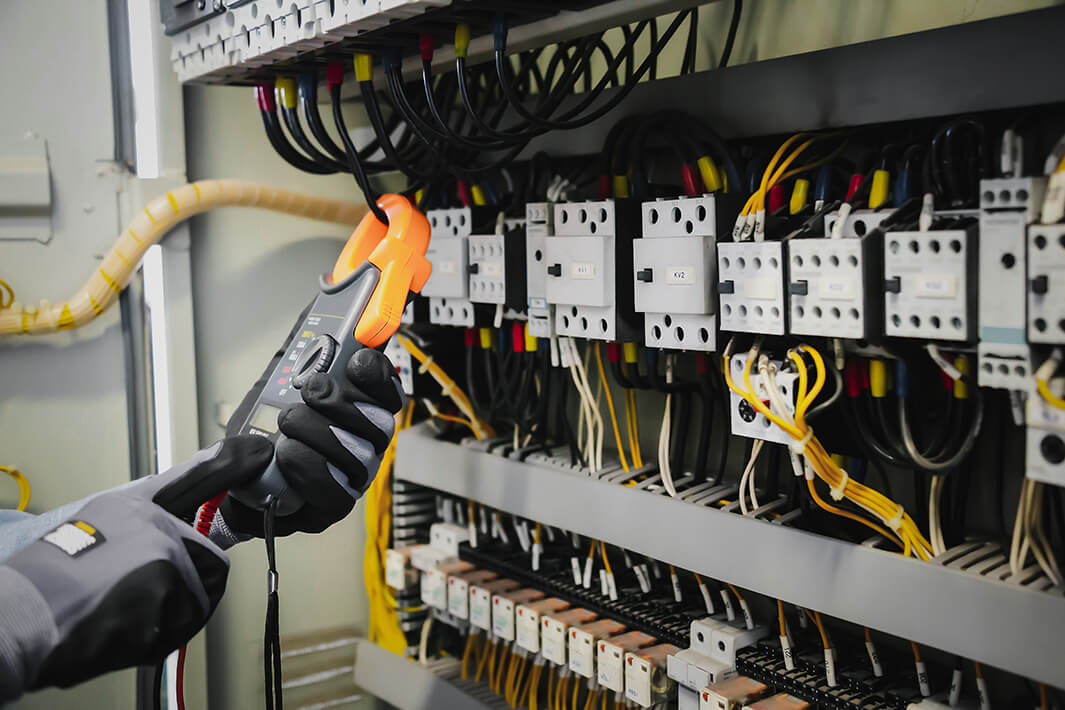Ah, the dreaded click. One minute you’re getting on with your day, the next the power’s off in part of your home, and you know exactly what that means: a circuit breaker has tripped. It’s frustrating, often happens at the least convenient time, and can be a little worrying.
But here’s the thing – that breaker isn’t tripping just to annoy you! It’s a crucial safety device doing its job to protect you and your home from potentially dangerous electrical faults. Understanding why it trips is the first step to sorting the problem out safely.
Understanding Your Consumer Unit (Fuse Box)
The heart of your home’s electrical system is your consumer unit, often still called a fuse box by many. Inside, you’ll find various switches designed to protect different circuits (like your upstairs lights, the kitchen sockets, etc.). The ones likely tripping are:
- MCBs (Miniature Circuit Breakers): These protect against too much current flowing, typically from an overload or a short circuit.
- RCDs (Residual Current Devices): These are all about preventing electric shocks. They detect tiny amounts of current leaking out of the circuit to earth (an ‘earth fault’). They often protect a group of circuits.
- RCBOs (Residual Current Breaker with Overcurrent Protection): These combine both MCB and RCD protection into a single unit for individual circuits.
When one of these ‘trips occurs’, it automatically switches off the power to that circuit.
The Main Reasons a Breaker (MCB) Trips
If an MCB (the sort that doesn’t have a test button) keeps tripping, it’s usually one of two things:
- Overload: This happens when you try to pull too much electricity through a circuit at once. Imagine trying to pour a bucket of water through a small hosepipe – it’s just too much! Plugging in too many high-power appliances on the same circuit simultaneously (like a kettle, toaster, and microwave in the kitchen, or a heater and a vacuum cleaner) is a classic cause.
- Short Circuit: This is more serious. It means electricity has found a direct, low-resistance path that bypasses the normal circuit, usually because a live wire has touched a neutral wire. This causes a massive surge of current. It can be caused by damaged cables, faulty wiring inside an appliance, or loose connections allowing wires to touch where they shouldn’t.
Why Your RCD or RCBO Might Trip (Earth Faults)
RCDs and RCBOs are designed to detect something different: earth faults. This is when electricity ‘leaks’ out of the intended circuit and finds a path to Earth. This is incredibly important because that ‘path to earth’ could be you, resulting in a nasty electric shock.
Common causes of earth faults include:
- A Faulty Appliance: A wire might have come loose inside, touching the metal casing (which should be earthed for safety).
- Damaged Wiring: A nail through a cable in the wall, or damaged insulation allowing a live wire to touch a pipe or building structure.
- Water: Water getting into sockets, lights, or outdoor connections can create a path for current to leak into the earth.
- Damaged Flex or Plug: The cable leading to an appliance is damaged.
- Nuisance Tripping: Less common, but sometimes the RCD unit itself is faulty or overly sensitive.
How to Troubleshoot Safely
Okay, the breaker’s tripped. What now? Follow these steps carefully:
- Identify Which One: Look at your consumer unit. See which breaker, RCD or RCBO has tripped (it will be in the ‘off’ position).
- Unplug Everything: Go around to the sockets and lights on that specific circuit turn everything off and unplug all appliances. This is crucial.
- Reset the Breaker: Go back to the consumer unit and try to switch the tripped breaker back on. If it immediately trips again with everything unplugged, do not keep trying. Call an electrician immediately.
- Plug In One by One: If the breaker stays on, start plugging in and switching on the appliances and lights on that circuit one by one.
- Find the Culprit: The moment the breaker trips again, you’ve likely found the faulty appliance or light fitting. Stop using it straight away.
- Check for Overload: If the breaker only trips when you turn on, say, the kettle the toaster, and the microwave, it’s probably an overload issue.
What to Do Next
- Found a Faulty Appliance? Great. Stop using it immediately. Get it properly repaired by someone qualified or replace it.
- Is it an Overload? Try to manage how many high-power items you use on that circuit simultaneously. If it’s a persistent problem, you might need an electrician to look at splitting circuits or adding new ones.
- Breaker Trips Immediately or Can’t Find the Cause? This suggests a more serious issue like a short circuit or wiring fault. Stop troubleshooting.
When to Call a Qualified UK Electrician
Safety is paramount! If you are ever unsure or uncomfortable, always call a professional. You must call a qualified electrician if:
- The breaker trips immediately when you try to reset it (with everything unplugged).
- You suspect the problem is with the wiring in the walls, sockets, or light fittings, not just an appliance.
- An RCD/RCBO keeps tripping randomly and you can’t identify a specific appliance causing it.
- You’ve found a faulty appliance but want expert advice or aren’t sure how to proceed.
- You need advice on handling overloads or potentially altering your wiring.
- Anytime you feel out of your depth.
Always use an electrician registered with a competent person scheme in the UK, like NICEIC, Elecsa, or STROMA, for peace of mind.
Safety First!
- Never, ever try to force a breaker back on repeatedly.
- Do not attempt to fix the wiring yourself unless you are qualified.
- Keep your hands dry when touching the consumer unit.
Conclusion
A tripping circuit breaker isn’t just an annoyance; it’s your home’s electrical safety system doing its job.
The cause is usually an overload, a short circuit, or an earth fault (detected by RCDs). While basic troubleshooting can help pinpoint the issue, remember that electricity is dangerous. If you can’t easily find the cause, or if the breaker trips instantly, play it safe and call a qualified UK electrician.
It’s the safest way to get the power back on and ensure your home’s electrics are safe and sound.








